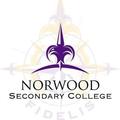Humanities

Year 7 & 8 Civics and Citizenship
Aims/Objectives:
- To understand the idea of democracy, government, laws, political rights, leadership, and Australia’s political and legal system
- To develop the ability to express opinions based on evidence and to explore democratic processes.
Content:
In Year 7, students study the views and values present in Australian government and society. They explore the responsibilities and freedoms of citizens and how citizens can participate in Australia’s democracy. Students also explore how Australia’s secular system of government supports a diverse society with shared values. Students also examine what it means to be Australian by identifying the reasons for and influences that shape national identity.
In Year 8, students will analyse the roles of key institutions and political groups in Australia’s democracy and the ways in which citizens participate in democracy. Students will explore the characteristics and types of law in Australia, and the principles and features of the Australian legal system, including how citizens can participate in lawmaking. Students will build their ability to compare a variety of sources and perspectives to investigate contemporary political, legal, and local community issues.
Tasks/Activities:
Students participate in discussions and debates about the nature of Australia’s values and what it means to be Australian.
They explore sources which depict the changing nature of Australian society.
Student Assessment:
- Structured questions
Year 7 & 8 Economics and Business
Aims/Objectives:
- To look at how markets are regulated and the value of work and entrepreneurship in society.
Content:
Year 7 students will explore the different reasons and people work and earn an income. They will explore trends on how the nature of work has changed, and make predictions about the future of workplaces. They will explore the responsibilities of income earners, including how to be a smart consumer, taxation, budgeting, and financial planning.
Year 8 students study aspects of economics including: the relationship between producers and consumers, the ways in which the government influences economic activity, making informed consumer decisions, supply and demand and sustainable resource allocation.
Tasks/Activities:
Year 7 students will become their own case study as they plan for, budget, and achieve their personal financial goals. They will be presented with financial scams and will have to use what they have learnt to ensure they are acting as safe and ethical consumers.
Year 8 Students will investigate the concept of entrepreneurship and develop and present a sales pitch to market a new product.
Student Assessment:
- Group oral presentation
- Budgeting and Financial planning task
Year 7 & 8 History
Aims/Objectives:
To develop knowledge, skills and values that enable students to participate as active and informed
citizens in a democratic society and a global community
- To understand the past of Australia and other societies
- To explain the features of places and environments and the ways in which people interact with them
- To understand the nature of cultures and describe and analyse natural and social systems.
Content:
Year 7
Students explore the nature of history by learning about the work of Archaeologists and examining the use of evidence to piece together the story of the past. The focus then shifts to a study of prehistoric times and the survival of early human beings. This introduction is followed by studies of Ancient Australian, Ancient Egyptian and Ancient Chinese civilisations. Students compare and contrast present day systems in Australia with those of the past.
Year 8
Students begin by exploring Viking culture and society including lifestyle, religion, raiding practices, social hierarchy, and society structure. Students then investigate the Japanese Shogun period and contrast this unique Asian culture with those of European origin, where aspects of feudalism are investigated further.
Tasks/Activities:
Students will develop historical understanding through the application of historical concepts and skills including: sequencing chronology using historical sources, identifying continuity and change, analysing cause/effect and determining historical significance.
Student Assessment:
- Research task
- Historical inquiry
- Extended response
- Visual analysis
- Multimedia presentation
Year 7 & 8 Geography
Aims/Objectives:
- To develop students’ interest in, knowledge and appreciation of the world around them
- To make sense of spatial change to solve geographic/environmental problems
- To increase the powers of observing, recording, interpreting and evaluating the environment via data from primary and secondary sources
- To learn to express in written, oral and graphic form, using geographic/environmental terminology and material.
Content:
Year 7 students begin by learning basic mapping skills before investigating the uses of water as a resource,
including its availability, scarcity and values. The management and sustainable use of water is also studied. Students also examine place and liveability by studying factors that influence liveability as well as ways to improve and manage liveable places. Students develop field work skills through a comparison of an urban environment with a more rural environment.
Year 8 students continue to improve their mapping skills to an advanced level before focussing on investigating different landscapes and landforms by understanding how they are formed by natural processes and affected by human interactions. Students complete a fieldwork task on coasts including processes, uses and management. Students also examine the changing nature of urban and rural environments including contrasting lifestyles and activities in megacities.
Tasks/Activities:
- Students complete a range of tasks and activities working either individually or in small groups
- Map interpretation and construction including the use of Geographic Information Systems
- The solving of geographic and environmental problems through individual and/or group work
- Practical exercises involving observation, recording, interpretation and evaluation of data
- Inquiry research activities using primary and secondary sources, including the use of information technology
- Fieldwork activities including primary data collection and interpretation.
Student Assessment:
- Case Studies
- Structured Questions
- Geographical Inquiry
- Practical Task
- Fieldwork Report
Year 9 History
Course Description:
Students examine the origins of the Industrial Revolution and the impact this revolution had on the world, including the settlement of Australia. The course then explores life in 19th century Australia, immigration and the lead up to federation in 1901. Finally, students study many aspects of World War One (1914 – 1918). Areas of study will include causes of the war, Australia’s involvement, weapons and technology, major battles and impact on the home front.
Areas of study:
- Industrial Revolution
- Australian Federation and White Australia Policy
- World War One
Assessment:
- Research task on Industrial Revolution
- Extended response on Federation and White Australia Policy
- Visual Analysis on World War One
- End of semester exam of 60 minutes
Year 9 Geography
Course Description:
In Biomes and Food Security, students examine the importance of biomes and food security. They also investigate the causes and solutions to food insecurity. In Geographies of Interconnections students focus on investigating how people perceive and connect to places. They explore the connectedness of the world through trade, technology and tourism. Students will develop a variety of geographical and spatial skills, including identifying, analysing and interpreting geographical data and information. Students will undertake fieldwork investigations.
Areas of study:
- Unit 1: Biomes and Food Security
- Unit 2: Geography of Interconnections
Assessment:
- Fieldwork report
- Case studies
- Structured questions.
- End of semester exam of 60 minutes
*Note that fieldwork is a compulsory component of Geography.
Year 9 Beyond School: Work, Life & Community
Course Description:
A practical, future-focused subject designed to equip students with essential life skills as they begin to think about their pathways beyond secondary school. Combining classroom learning with meaningful community engagement, this subject prepares students for the responsibilities and opportunities of adult life, both in the workplace and in society.
Students will explicitly explore key areas of consumer and financial literacy, including how to manage personal budgets, understand tax and superannuation, navigate banks and interest rates, and make informed financial decisions. They will also gain insights into the rights and responsibilities of both employers and employees, including key principles under Fair Work regulations.
A central feature of this subject is its integration with a community service program, providing students with hands-on opportunities to apply their learning in real-world contexts. Through this program, students will explore work futures, the role of volunteering, and develop skills in entrepreneurship, financial planning, and responsible participation in community life.
By the end of the semester, students will have developed a deeper understanding of how to make informed decisions, manage responsibilities, and contribute positively to their community – valuable skills for life beyond the classroom.
Assessment:
Assessment is based on research tasks, tests, class work and participation in a community service project.
